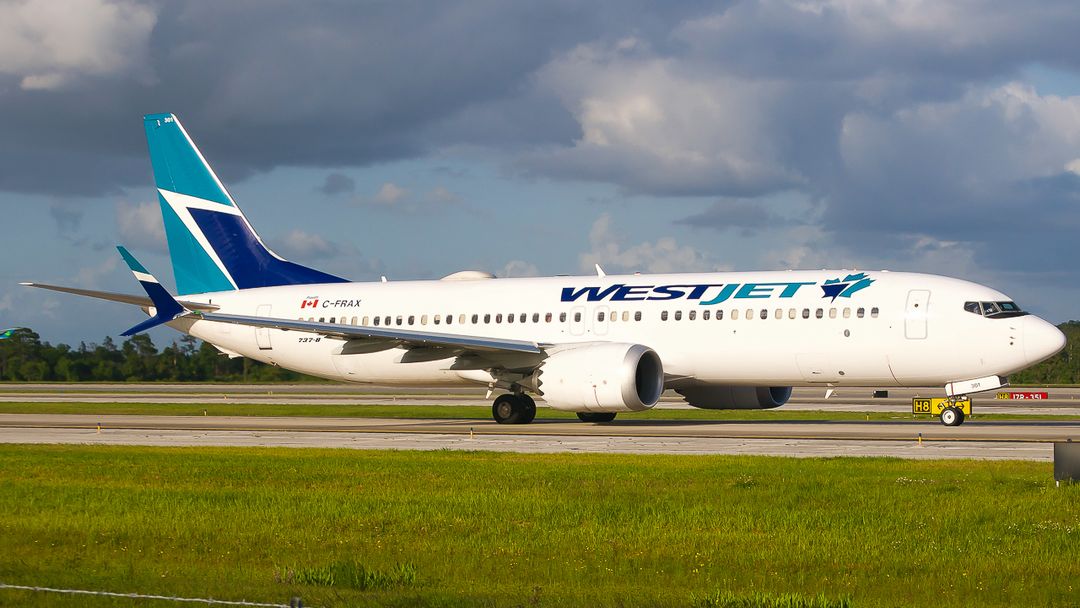The Canadian province of Manitoba plans to build a CA$1.9 billion sustainable aviation fuel (SAF) facility near the city of Portage la Prairie. In addition, the provincial government of Manitoba and the Government of Canada plan to spend CA$2.9 million on an engineering study for the new facility.
The funding from the provincial and federal governments will be used for a front-end engineering design study that Azure Sustainable Fuels Corporation (Azure) plans to conduct over the next two years. Azure is one of the largest Canadian companies that is involved in research and development of SAF.
Canada has the potential to establish a SAF industry due to the country's vast supply of natural resources. The provinces in the Canadian Prairies - Alberta, Saskatchewan, and Manitoba - are among the world's largest producers of various agricultural products.

Manitoba's Premier Heather Stefanson said at a press conference that the facility will be powered by renewable hydroelectric energy. The materials needed for the SAF, including canola and soybeans, will be sourced directly from local farming communities. She anticipates that the construction of the facility will create 1,500 jobs while the facility itself will create 150 jobs when complete.
Stefanson added: "This furthers our PC team's commitment to seize the opportunities ahead and create more high quality, high paying jobs for Manitobans. Construction of the facility is projected to have an impact on Manitoba's economy of [CA$2 billion], which will benefit, of course, all Manitoba and, particularly, those in this community. Manitoba is well positioned for companies like Azure to power the world's drive to lower carbon emissions and to create net zero energy markets."
Finally, Stefanson highlighted the provincial government's desire to "break down any barriers" that may present a hurdle to Azure. The barriers are mostly related to the approval process, which includes conducting an environmental impact assessment of the site before construction begins.

Manitoba's Minister of Agriculture Derek Johnson spoke about the benefits that the facility would provide to the province's economy. Agriculture is one of the largest parts of Manitoba's economy, with the majority of activity happening in the southern half of the province.
Johnson added: "Farmers benefit from new market opportunities, and as a result they lower their own supply chain risk. Communities benefit through good jobs, new residents, new revenue and new optimism that we can do these great things together."
The facility is expected to produce one billion liters of SAF per year once completed, with the majority of feedstock products coming from domestic sources. Federal law currently requires that aircraft blend SAF with traditional petroleum-based jet fuel.

Azure's Chief Executive Officer Douglas Cole mentioned that he chose to establish the facility in Manitoba for multiple reasons. The province's benefits include a large agricultural industry, access to renewable electricity, and its strategic location near the center of North America.
Cole added: "This [financial] support not only accelerates economic growth within the province but also successfully integrates Canadian agriculture and energy markets to provide a sustainable decarbonizing solution. Portage la Prairie's strategic location offers us several advantages for establishment of a sustainable aviation fuel, or SAF, facility. Manitoba has a rich agriculture sector and provides abundant biomass resources such as canola oil and soybean oil, which will be utilized to produce SAF through proven commercial technologies."
A large amount of the project's funding will come from the Sustainable Canadian Agricultural Partnership (Sustainable CAP).

Sustainable CAP is a CA$3.5 billion partnership between Canada's federal, provincial, and territorial governments that aims to improve the country's agricultural sector. The agreement includes CA$1 billion in federal programs and CA$2.5 billion in cost-shared programs that are jointly funded by governments on the federal, provincial, and territorial level.
Construction of the facility is expected to be complete by 2028. Once operational, the facility will contribute more than CA$500 million to Manitoba's economy. Furthermore, the facility is expected to reduce carbon dioxide emissions by approximately 2.6 million tons each year.
Comments (0)
Add Your Comment
SHARE
TAGS
NEWS Canada Sustainability SAF Sustainable Aviation Fuel ManitobaRECENTLY PUBLISHED
 The Future Of Aerospace: Integrating Satellite Analytics With Aviation Systems
The aerospace sector is undergoing significant change as space technologies blend with aviation. Having the most up-to-date satellite images now means progress in air traffic control and weather forecasting.
INFORMATIONAL
READ MORE »
The Future Of Aerospace: Integrating Satellite Analytics With Aviation Systems
The aerospace sector is undergoing significant change as space technologies blend with aviation. Having the most up-to-date satellite images now means progress in air traffic control and weather forecasting.
INFORMATIONAL
READ MORE »
 The Swiss Standard of Comfort Transfers: Clean, Timely, Elegant
For luxury travellers and business clients, the Swiss standard of transport is not merely about getting from one point to another - it is about arriving in comfort, style, and absolute professionalism.
INFORMATIONAL
READ MORE »
The Swiss Standard of Comfort Transfers: Clean, Timely, Elegant
For luxury travellers and business clients, the Swiss standard of transport is not merely about getting from one point to another - it is about arriving in comfort, style, and absolute professionalism.
INFORMATIONAL
READ MORE »
 Mount Everest Summit: Cheaper by Helicopter, But is it Worth it?
Climbing Mount Everest is neither an easy nor a cheap feat. At a height of just over 29,000 feet (~8,849 meters), reaching the summit of the world’s tallest mountain nearly puts climbers at the height at which aircraft cruise. Today, we will examine and compare the costs of the two primary methods used to experience Mount Everest: by actually climbing the mountain or by taking a helicopter tour.
STORIES
READ MORE »
Mount Everest Summit: Cheaper by Helicopter, But is it Worth it?
Climbing Mount Everest is neither an easy nor a cheap feat. At a height of just over 29,000 feet (~8,849 meters), reaching the summit of the world’s tallest mountain nearly puts climbers at the height at which aircraft cruise. Today, we will examine and compare the costs of the two primary methods used to experience Mount Everest: by actually climbing the mountain or by taking a helicopter tour.
STORIES
READ MORE »



